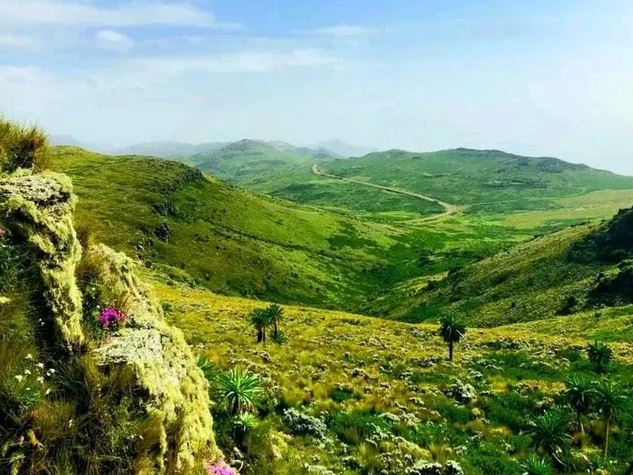Menz is a historical region located in the central highlands of Ethiopia, within what is modern-day North Shewa. Over the centuries, Menz has played an important role in the religious, cultural, and political life of Ethiopia. Here’s a brief overview of the history of Menz in relation to Shewa and the broader Ethiopian context:
Historical Setting: Menz was traditionally known for its fertile highlands and was one of the principal breadbaskets of the central Ethiopian plateau. Its population has been predominantly Christian, and the region has numerous churches and monasteries.

Religious Significance: Menz is home to various ancient monasteries and churches. The Christian tradition in Menz dates back over a thousand years. One of the well-known monastic institutions in Menz is the monastery of Gebre Menfes Kidus.
Political Importance: In the Ethiopian feudal system, Menz was a vital region because it was densely populated and agriculturally productive. Menz produced significant quantities of grain, which was then transported to other parts of the Ethiopian Highlands. Because of its agricultural wealth, control over Menz was politically significant, and its leaders often played roles in broader Ethiopian politics.
Zemene Mesafint (Era of Princes): During the Zemene Mesafint, a period in Ethiopian history from the late 18th century to the mid-19th century when the central authority was weak and regional lords and princes had significant power, Menz was ruled by local lords who often played bigger roles in the political intrigues of the era.
Integration into Shewa: Menz, along with other regions in central Ethiopia, was incorporated into the expanding kingdom of Shewa during the late 19th century under the leadership of Menelik II, who later became Emperor of Ethiopia. Menelik was originally the King of Shewa and expanded his kingdom, laying the foundation for modern Ethiopia.
Modern Times: With the establishment of the modern Ethiopian state, Menz became administratively a part of North Shewa in the Amhara Region. It continued to be an agricultural hub, but like many other regions of Ethiopia, Menz faced challenges, including periods of drought and socio-political changes.
In summary, Menz is a region with deep historical and cultural roots in the Ethiopian context. Its significance ranges from its religious contributions with its ancient churches and monasteries to its political and economic importance in various eras of Ethiopian history.